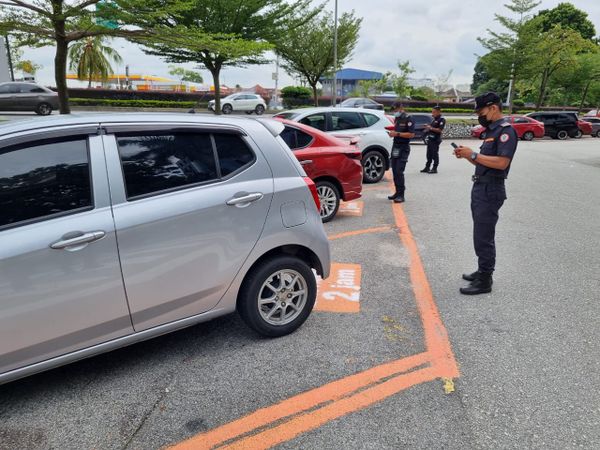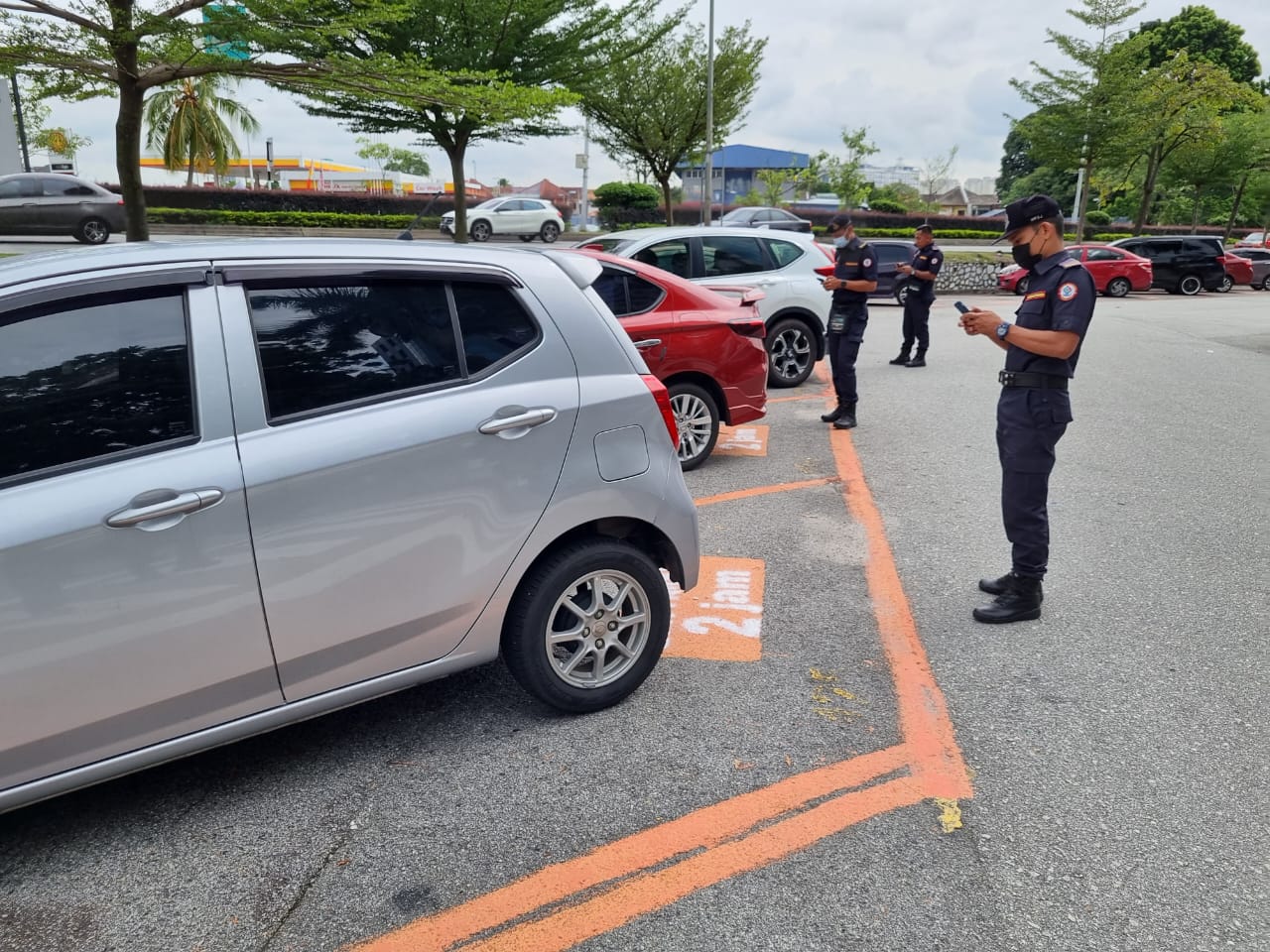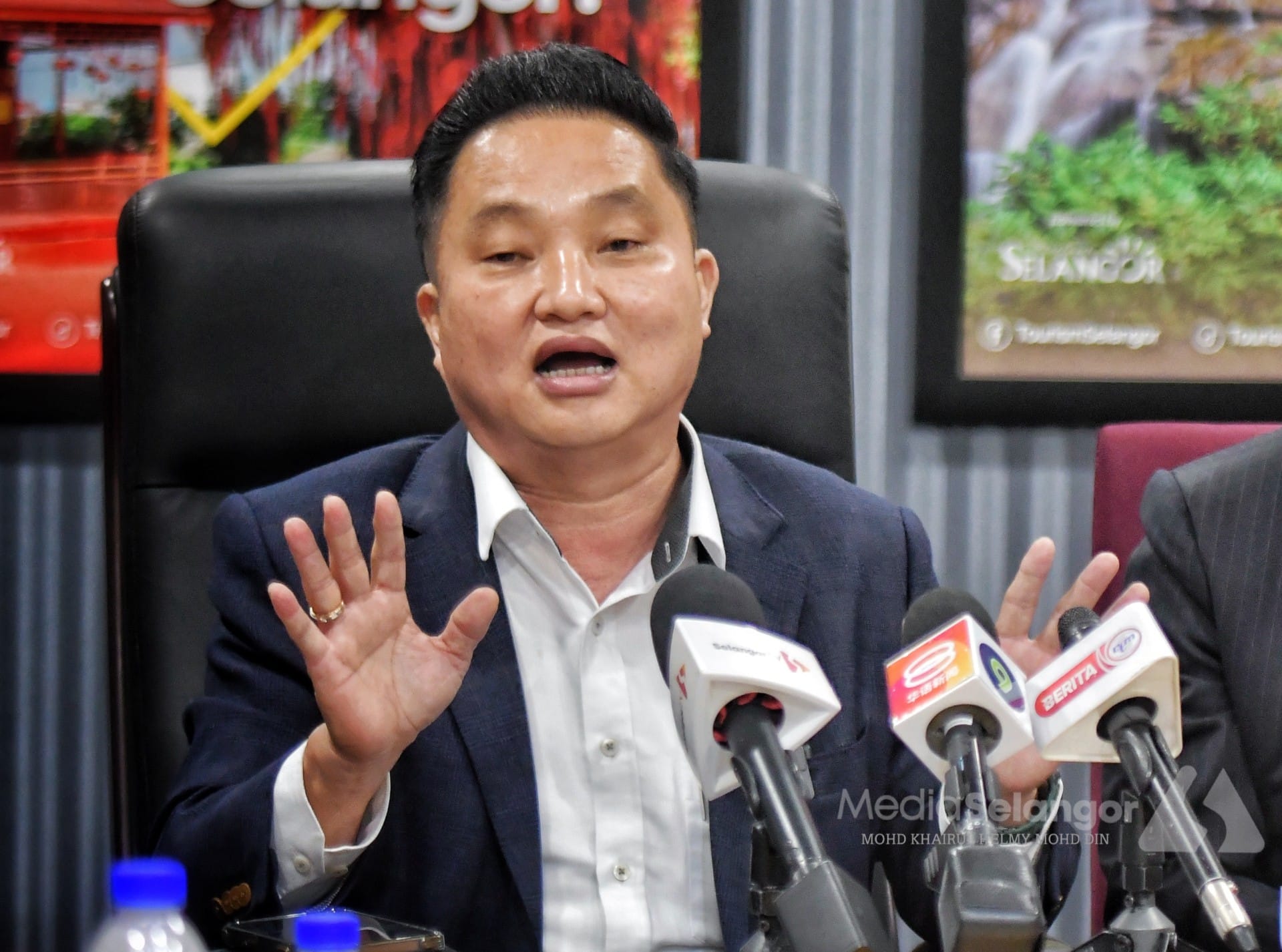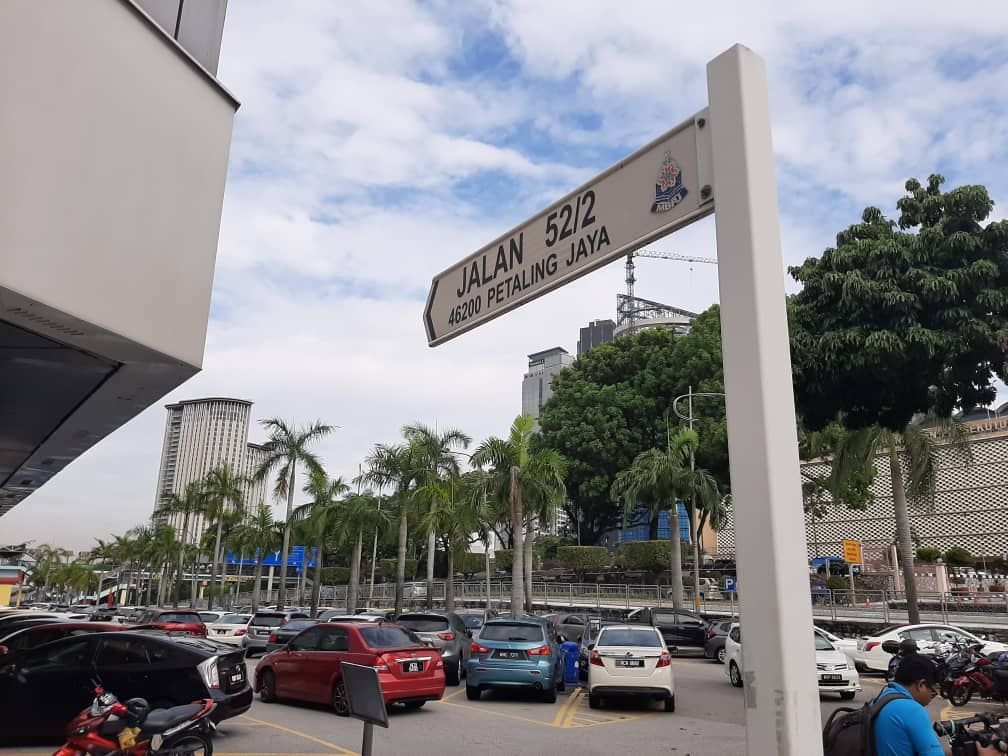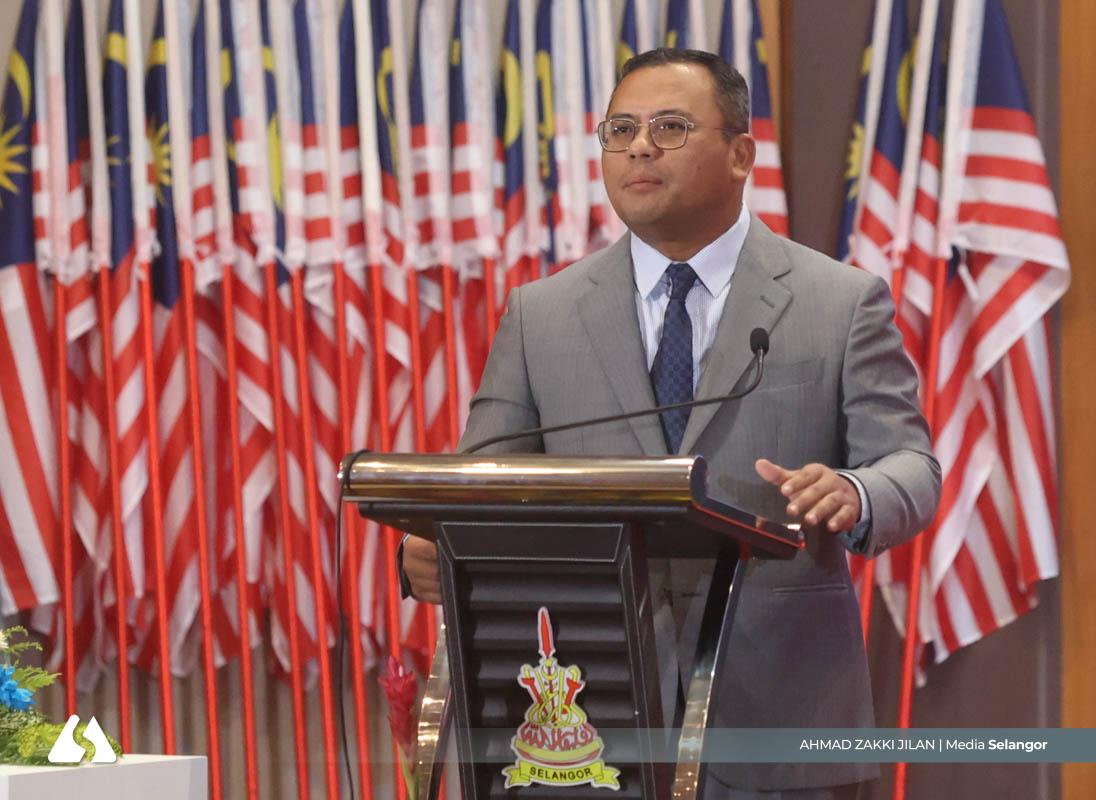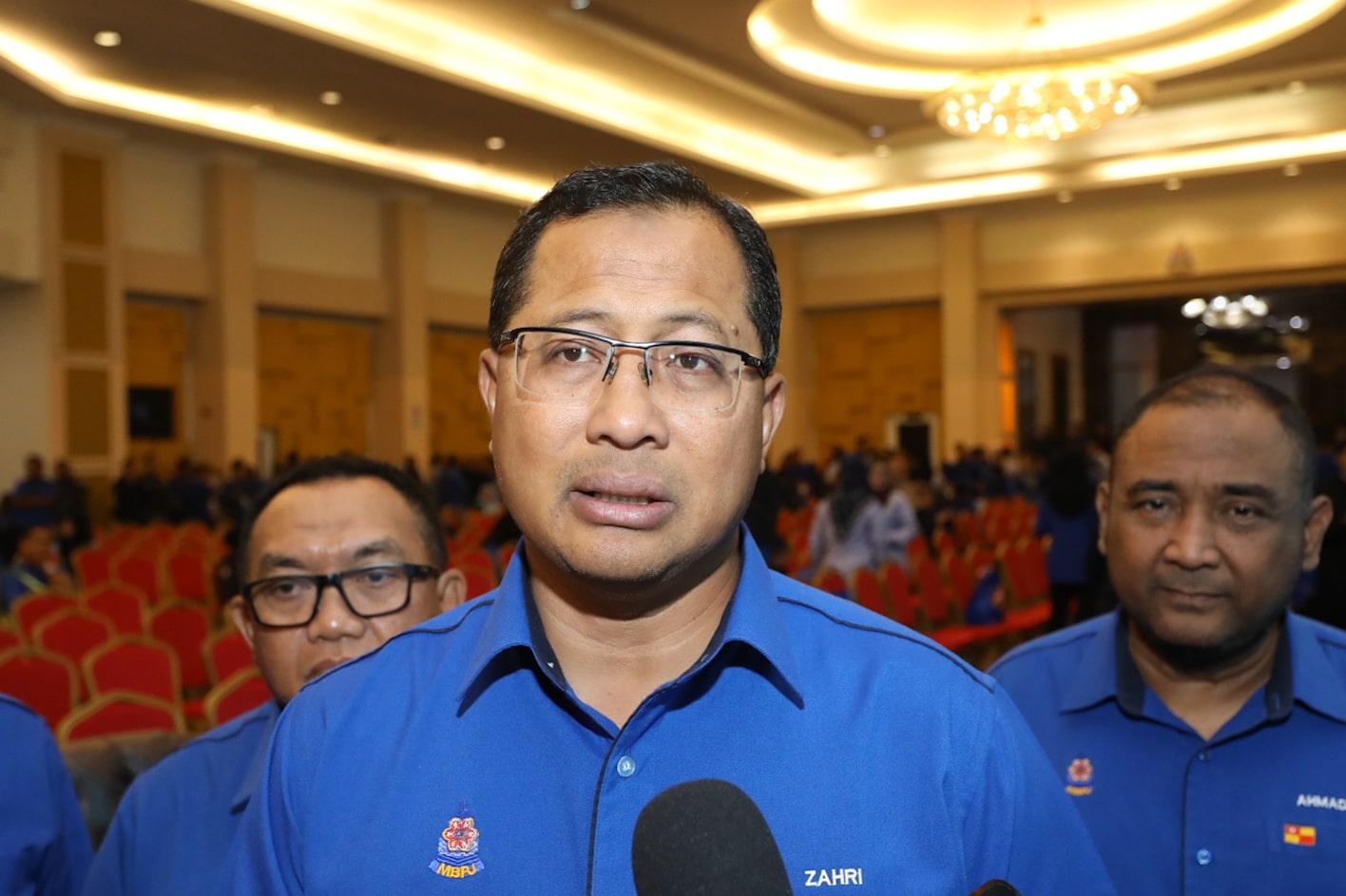SHAH ALAM, Aug 6 — On August 1, the state government is implementing Selangor Intelligent Parking (SIP) in stages across the administrative districts of three local authorities: the Subang Jaya City Council (MBSJ), the Shah Alam City Council (MBSA), and the Selayang Municipal Council (MPS).
Currently, negotiations are being carried out with the Petaling Jaya City Council (MBPJ).
This move triggered various responses from the public, ranging from concerns about the transparency of implementation and its impact on users, how parking fee collections are shared, and the effects on the local authorities.
Media Selangor summarises the key issues raised to clarify matters related to SIP and the latest developments, as reported by journalist Sofia Nasir.
1. What is the issue?
SIP was introduced to curb revenue leakages from parking charges that should be collected from users, thereby increasing compliance. It is being implemented in the relevant local authorities, as existing parking management contracts expired on July 31.
The state government estimates that the current parking system only collects around 30 per cent of the total potential revenues.
2. Who is operating SIP?
SIP will be jointly operated by Rantaian Mesra Sdn Bhd, a subsidiary of Menteri Besar Selangor (Incorporated), or MBI, together with a concessionaire company and the local authorities themselves, according to state executive councillor for local government and tourism Dato’ Ng Suee Lim.
He said the local authorities will retain full enforcement authority, while Rantaian Mesra will coordinate the system, and the appointed concessionaire will manage daily operations.
The concessionaire will also invest RM200 million in SIP infrastructure, including installing around 1,800 closed-circuit television (CCTV) cameras and additional enforcement personnel to improve compliance.
On Friday (August 1), ITMAX Sdn Bhd informed Bursa Malaysia that MBSJ appointed its subsidiary Selmax Sdn Bhd to manage SIP in its jurisdiction for 10 years, with an option to extend the contract for five more years.
3. How will SIP help solve parking issues?
SIP will not only improve the local authorities’ parking system, but it is also a key pillar of Selangor’s smart city concept and aligns with the Smart Selangor initiative.
Smart Selangor is a state government initiative aimed at improving the quality of life for the people, businesses, and the public sector through the use of digital technology and the benefits of big data.
Ng also hopes SIP will serve as a model for modern parking management, with CCTV monitoring and a control centre overseeing operations in real time.
In addition to SIP, the system’s infrastructure will utilise smart technologies equipped with Internet of Things capabilities, CCTVs, and artificial intelligence to detect illegal parking, rule violations, and to monitor safety.
“This effort is expected to help reduce crime rates in urban areas,” he said.
SIP will also empower the local authorities’ enforcement teams via patrol vehicles fitted with smart sensors and portable devices.
4. What is the main focus of SIP?
Menteri Besar Dato’ Seri Amirudin Shari has stated that SIP aims to increase compliance with parking payments.
“Previously, only 30 per cent of parking revenue was collected, which meant that 70 per cent went uncollected. We need to improve this using technology,” he said.
SIP will also centralise digital and integrated parking management. Once implemented, each participating local authority will use the same system: standardising rates, operating hours, payment methods, and platforms.
It is expected to reduce the local authorities’ long-term operational costs, as they will no longer bear the direct cost of day-to-day parking operations.
5. What is the response from the local authorities?
Although all four local authorities agreed in principle with the state government’s decision, MBPJ has raised questions, particularly over revenue sharing.
Petaling Jaya Mayor Mohamad Zahri Samingon said the transition would not affect the current parking situation within MBPJ’s jurisdiction.
“One of our conditions is that revenue must be equal to or higher than what we currently receive,” he said.
Zahri also questioned the basis for the devolution of enforcement powers and the duration of delegation under the new system, with the council holding several discussions with MBI for further clarification.
Amirudin confirmed that only MBPJ has raised objections, and the matter is still under negotiation.
Meanwhile, The Star reported that the Ampang Jaya Municipal Council (MPAJ) has expressed support for SIP, even though it is not among the local authorities currently included in the implementation plan.
Its Deputy President Hasrolnizam Shaari said they have already initiated discussions with the state government due to the system's potential to improve operational efficiency and revenue.
6. What is the public response?
Four Pakatan Harapan MPs representing the affected constituencies: Lee Chean Chung (Petaling Jaya), William Leong (Selayang), Azli Yusof (Shah Alam), and Wong Chen (Subang), have openly voiced their objections. In a joint statement, they called for the implementation of SIP to be postponed.
They also demanded that all terms and conditions of the SIP scheme, especially the profit-sharing structure among involved parties, be disclosed to the public. Additionally, they urged the state government to establish a bipartisan independent committee to conduct a thorough review of the SIP proposal.
Meanwhile, Selangor MCA chairman Datuk Lawrence Loh urged the state government to ensure that the interests of both the local authorities and the public are protected. He believes the SIP proposal is not the right solution to the issue of low parking revenue, stating that the problem could be resolved by improving the parking payment application and strengthening enforcement.
At least two residents’ associations, PJ Sejahtera and the Petaling Jaya Lestari Association, have also called on the state government to reconsider implementing SIP.
7. What does the state government say?
The Menteri Besar emphasised that the implementation of SIP was not conducted through direct negotiation but rather through a transparent and competitive open tender process.
MBI initiated the process by issuing a Request for Proposal (RFP). Records show the RFP was open from January 8 to January 22 this year.
“MBI issued the RFP, and 26 companies expressed interest in the sector. In the end, three companies were shortlisted,” said Ng.
8. What will happen with SIP’s implementation?
Rantaian Mesra will manage the SIP system. The private sector will enforce and maintain parking areas through a selected concessionaire company.
However, enforcement powers and policy will remain under the local authorities’ jurisdiction.
No parking rate increases have been announced. The state government is maintaining the current charge of RM0.40 to RM0.60 per hour for now. Ng added that any future rate changes must be approved by both the state government and the local authorities.


